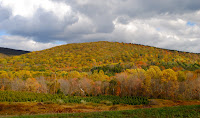
Please accept my wishes for a beautiful and memorable Christmas. For this week I decided to choose the beautiful simple message of Away In A Manger. According to Wikipedia, the online dictionary, "The song was first published with two verses in an Evangelical Lutheran Sunday School collection, Little Children's Book for Schools and Families (1885) where it simply bore the title "Away in a Manger" and was set to a tune called "St. Kilda," credited to J.E. Clark. For many years the text was credited to the German reformer Martin Luther. Research has shown, however, that this is nothing more than a fable. In the book Dainty Songs for Little Lads and Lasses (1887) it bears the title "Luther's Cradle Hymn" and the note, "Composed by Martin Luther for his children, and still sung by German mothers to their little ones." A possible reason for the spurious attribution to Luther is that the 400th anniversary of his birth was in 1883. The words were either based on a poem written for this anniversary or were credited to Luther as a clever marketing gimmick.This song has never been found in Luther's works. The third stanza, "Be near me, Lord Jesus" was first printed in Gabriel's Vineyard Songs (1892), where it appeared with a tune by Charles H. Gabriel (simply marked "C"), thus these words are probably by Gabriel. Gabriel credited the entire text to Luther and gave it the title "Cradle Song." This verse is sometimes attributed to Dr. John McFarland, but since the popular story dates his contribution to 1904 (postdating the 1892 printing by 12 years), his contribution is highly questionable". But no matter who actually wrote it, it has been part of most Christmas celebrations for many years. And just a reminder, the Babe born in the manger was the same Son of God who later hung on the cross for the payment of mankind's sins. And if you have never accepted Him as your personal Savior, the message of Christmas has not yet changed your life. Accepting Him today would be the greatest Christmas gift.
(1) Away in a manger,
No crib for His bed
The little Lord Jesus
Laid down His sweet head
The stars in the sky
Looked down where He lay
The little Lord Jesus
Asleep on the hay
(2) The cattle are lowing
The poor Baby wakes
But little Lord Jesus
No crying He makes
I love Thee, Lord Jesus
Look down from the sky
And stay by my side,
'Til morning is nigh.
(3) Be near me, Lord Jesus,
I ask Thee to stay
Close by me forever
And love me I pray
Bless all the dear children
In Thy tender care
And take us to heaven
To live with Thee there
Listen to it here. LISTEN




















